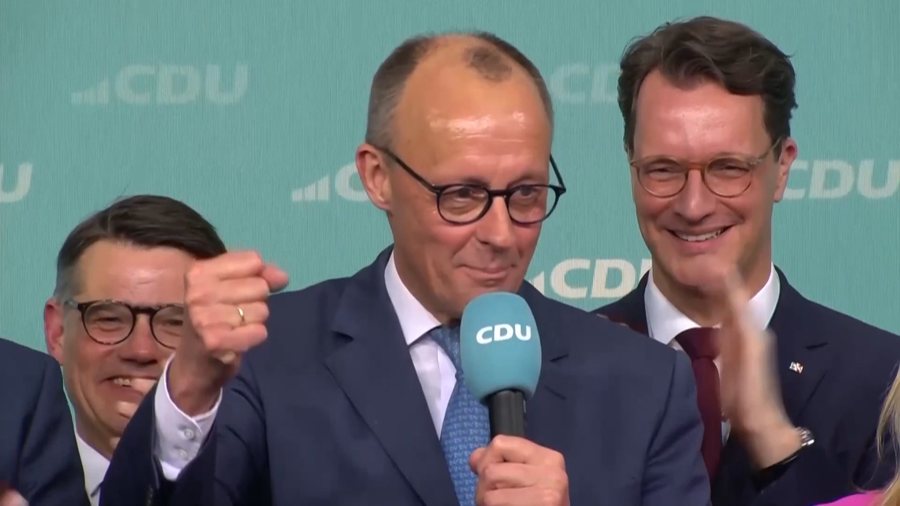
Germany's incoming Chancellor Friedrich Merz has questioned the existence of the North Atlantic Alliance if it remains in its "current form" until June, saying Europe must quickly create an independent defense capability. Merz made the comments shortly after the first exit polls showed him leading the German election.
"I would never have thought I would have to say something like this on a TV show, but, after Donald Trump's comments last week...it's clear that this government doesn't really care about the fate of Europe," Merz told German public broadcaster ARD.
Referring to a NATO summit planned for June, Merz said he was curious to see “whether we will still be talking about NATO in its current form, or whether we will have to create an independent European defense capability much sooner.” He said this would mean Berlin might have to become less dependent on the US for its nuclear umbrella, too, and advocated talks with Europe’s nuclear powers, France and Britain, about expanding their nuclear defenses.
Meanwhile, immediately after securing the post of Chancellor Friedrich Merz, efforts to form a coalition government will begin.
"We don't know yet whether we will need one or two partners, but either way, we will have the mandate to lead the government. Thank you very much for the extraordinary support. I mean, the general secretary Carsten Linnemann can't be here right now, he's still on a TV show, but the entire party headquarters did a great job these past weeks and months," said Frederich Merz, the future chancellor of Germany.
Merz, who has no previous experience leading the country, will take responsibility for Europe's largest economy in a shambles, its society divided by migration and its security caught between a confrontational US and a assertive Russia and China. The 69-year-old faces lengthy coalition negotiations after the far-right Alternative for Germany (AfD) climbed into second place.
"For me, the absolute priority will be to strengthen Europe as quickly as possible, so that we can achieve real independence from the US step by step," Merz said on Sunday.
His conservative CDU/CSU bloc came in first with 28.6%, ahead of the far-right Alternative for Germany on 20.8%, its best ever result, according to provisional results. The main parties, however, have ruled out cooperation with the AfD, a party that is monitored by German security services on suspicion of extremism but has been supported by US figures including billionaire Elon Musk. That means Merz will have to negotiate with Scholz’s centre-left Social Democrats (SPD) to form a coalition in talks that are likely to last months after a bruising campaign that highlighted political differences. Meanwhile, FDP leader Christian Lindner announced his retirement from politics on election night. “I am now retiring from active politics,” he wrote in X, adding: “With only one feeling: gratitude for almost 25 intense, challenging years full of design and debate.” (A2 Televizion)











